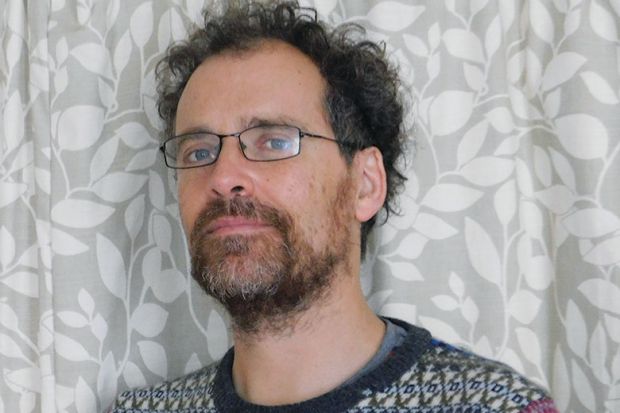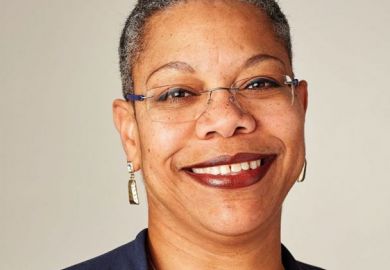Toby Green is senior lecturer in lusophone African history and culture at King’s College London. Earlier this year, he won the British Academy’s Nayef Al-Rodhan Prize for Global Cultural Understanding for his book A Fistful of Shells: West Africa from the Rise of the Slave Trade to the Age of Revolution, which argues that the continent had been globally connected long before the 19th-century “Scramble for Africa”.
Where and when were you born?
London in 1974.
How has this shaped who you are?
I was a child of the 1980s, of the Falklands War and the miners’ strike, and grew to adulthood in the 1990s, when there was a false sense of renewed pseudo-imperial wealth in Britain, largely caused by cheap oil and gas stolen from the former Soviet Union. All that shaped an interest in labour, capital and the decline of the British Empire. It also gave me, as a relatively privileged person, a misguided sense of Britain and the world, which it has taken me most of my adult life so far to unpick.
How did it feel to win the Nayef Al-Rodhan Prize?
I was very surprised. There were some wonderful books by brilliant writers on this year’s shortlist, dealing with vital issues: identity, partition, race in the US, the global impact of Maoism. Just getting on to the shortlist was prize enough. I was pleased, too, because the award brings very welcome attention to the importance of African history in the past, present and future.
Why is it important to shed new light on West African history?
This is one of the world’s most important regions, jockeyed over by global powers but presented in the media as a source of problems – illegal migration, jihadism, poverty – and as if these are all immediate problems caused by current dynamics. The international community behaves as if there is no historical context to this at all, as if they have all the answers; and this is done with the silent consent of West African leaders, who have not prioritised the teaching and study of this history in the region either. The book shows that all these issues have a deep history, a history of interconnectedness, and addressing them requires first consciousness of this history.
How did you become a historian?
I initially studied philosophy because I thought I would be able to approach some fundamental truths about the world, but I found that I really was just studying the logic behind the Western outlook. I had always been interested in different worldviews, so after graduating I became a travel writer and wrote a couple of travel books. Gradually, my interest in how the world is now changed into an interest in how it became like that, so I turned to history.
Why did you get involved in developing an A-level history module on African kingdoms?
The lack of African history on the UK school curriculum had long frustrated me. It doesn’t speak to minority students. That’s why so few of them carry on to A-level history and beyond, and why history departments in the UK are so white. When my 15-year-old daughter recently said that she had always thought history was about wars and men, it exemplified the problem. However, what I discovered in the process was that developing the option was the easy part; the real struggle has been to get teachers to deliver it, largely because of overwork and resistance (or, as I see it, institutional racism) in school senior management.
What needs to be done to improve decolonisation in universities?
Young people have done great work to push this up the agenda and ensure that it doesn’t go away. However, there are serious limitations to the discussion, a lot of it because of an inability to be honest about the real issues. This is an intersectional question that touches deeply on the history of the emotions. These reasons are why most white people prefer to be in a position of patronage over minorities, so when BAME candidates come along who are in fact more brilliant and able than a prize committee, funding board, or panel, it’s very threatening to them. Changing this requires a lot of emotional as well as practical work. An open conversation is needed, and one that does not just become another echo chamber.
You have talked about the need for academics in the global North to better interact with the global South – how so?
It’s vital. The ideas of the global North have led to the climate crisis, massive inequalities and the spread of political insecurity across the world. Ideas from the South must enter the dialogue for lasting, positive change to happen. For instance, ecological ideas shaped the relationship of Africans to the land in many societies, centuries before Western ideas of conservation emerged. Yet funders in the North maintain a colonial outlook. A lot of funding schemes have a skewed power relationship written in – the European Union talks of “capacity building”, the UK of “global challenges” – and perspectives from the South are often ignored in the designing of projects.
What advice would you give to prospective students?
First, learn languages as they will open doors that you can’t imagine. Second, you need to think hard about what most interests you in life and follow that route with persistence. If you’re not sure at 18 or 19, get a job of some kind and wait a little.
What would you like to be remembered for?
For caring, kindness and laughter. But one thing that history teaches you is that we are all in the end forgotten. The absurd belief in the posterity of individuals is a big problem in Western society, as the political class demonstrates. What matters are our collective efforts that will follow on into the future.
What one thing would improve your working week?
Less needless fights driven by oversized egos.
anna.mckie@timeshighereducation.com
Appointments
Deborah Terry has been named the next vice-chancellor of the University of Queensland. The move in August will see Professor Terry, who is vice-chancellor of Perth’s Curtin University, return to the institution where she has spent most of her professional life. Professor Terry, the current chair of Universities Australia, joined Queensland as a postdoctoral research fellow in psychology in 1990 and spent six years as senior deputy vice-chancellor there. “Professor Terry’s deep knowledge of the sector, her focus on people and culture and her track record in building partnerships…are the skills needed to build on the achievements of [retiring vice-chancellor] Peter Høj,” said Queensland chancellor Peter Varghese.
Lisa Roberts has been appointed vice-chancellor of the University of Exeter. Professor Roberts, currently deputy vice-chancellor, research and innovation, at the University of Leeds, will succeed Sir Steve Smith next September. A professor of virology, she was previously executive dean of the Faculty of Health and Medical Sciences at the University of Surrey. Professor Roberts said she was “looking forward to building upon the considerable strengths in education and research which have been firmly established over a number of years” under Sir Steve.
Amit Chakma is joining the University of Western Australia next July as vice-chancellor. Professor Chakma stepped down after a decade as vice-chancellor of the University of Western Ontario in June this year, having previously served as vice-president (academic) and provost of the University of Waterloo. Professor Chakma will replace Dawn Freshwater, who will become vice-chancellor of the University of Auckland in March.
Jackie Dunne has been appointed vice-chancellor of Newman University, Birmingham. Professor Dunne, currently deputy vice-chancellor at the University of Wolverhampton, will succeed Scott Davidson at Newman in March. Professor Dunne said she was “delighted to be joining a successful institution with a strong heritage and values base, alongside a clear mission to offer a university experience to all who can benefit”.
Register to continue
Why register?
- Registration is free and only takes a moment
- Once registered, you can read 3 articles a month
- Sign up for our newsletter
Subscribe
Or subscribe for unlimited access to:
- Unlimited access to news, views, insights & reviews
- Digital editions
- Digital access to THE’s university and college rankings analysis
Already registered or a current subscriber?




